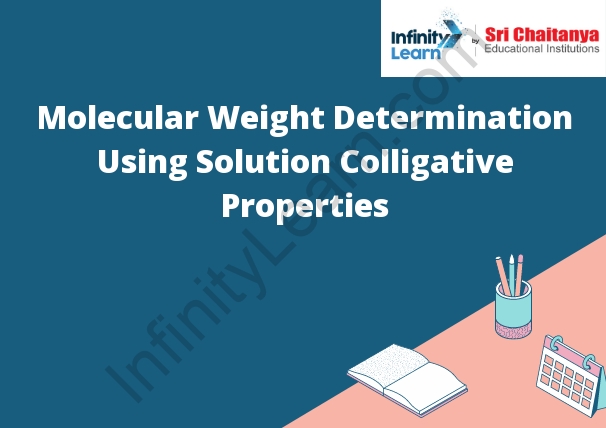Table of Contents
Colligative Properties Definition
Colligative properties are properties that depend on the number of particles in a solution, not on the type of particles. The most common colligative properties are freezing point depression and boiling point elevation.

Molecular Weight
Molecular weight is the weight of a molecule. It is calculated by adding up the atomic weights of all the atoms in a molecule.
Types of Colligative Properties
There are four types of colligative properties: boiling point elevation, freezing point depression, osmotic pressure, and vapor pressure lowering.
Boiling point elevation is the increase in boiling point that occurs when a solute is dissolved in a solvent. The greater the concentration of the solute, the higher the boiling point will be. This is because the dissolved particles interfere with the solvent’s ability to vaporize.
Freezing point depression is the decrease in freezing point that occurs when a solute is dissolved in a solvent. The greater the concentration of the solute, the lower the freezing point will be. This is because the dissolved particles interfere with the solvent’s ability to crystallize.
Osmotic pressure is the pressure that is exerted by a solvent on a solute in order to prevent the solute from crossing a semipermeable membrane. The greater the concentration of the solute, the greater the osmotic pressure will be.
Vapor pressure lowering is the decrease in vapor pressure that occurs when a solute is dissolved in a solvent. The greater the concentration of the solute, the lower the vapor pressure will be. This is because the dissolved particles interfere with the solvent’s ability to evaporate.
Depression In Freezing Point
Depression is the decrease in the vapor pressure of a liquid with increasing temperature. In freezing point depression, the freezing point of a solvent is lowered when an impurity is dissolved in it. The greater the concentration of the impurity, the greater the depression of the freezing point.
Elevation in Boiling Point
The boiling point of a substance is the temperature at which the vapor pressure of the liquid equals the atmospheric pressure. The higher the vapor pressure of a liquid, the higher the boiling point.
The boiling point of a substance increases with an increase in the elevation of the location.
Osmotic Pressure
Osmotic pressure is the pressure exerted by a solution on a semi-permeable membrane that is separating it from another solution. The pressure is created by the kinetic energy of the solvent molecules that are moving across the membrane. The osmotic pressure of a solution is directly proportional to the concentration of the solution and the molarity of the solution.
The osmotic pressure of a solution can be used to determine the concentration of a solution. The osmotic pressure of a solution can also be used to determine the molarity of a solution.
Relative Lowering of Vapour Pressure
The vapour pressure of a liquid is lowered when it is mixed with another liquid.
The vapour pressure of a liquid is lowered when it is mixed with another liquid. The reason for this is that the molecules of the two liquids are now sharing space and this reduces the number of molecules that are available to form a vapour.
State the Properties of the Polymers that influence their Molecular Weight.
The molecular weight of a polymer is determined by a number of factors, the most important of which are the type of monomers used to make the polymer, the type of polymerization reaction, and the degree of polymerization.
The molecular weight of a polymer is determined by the size and weight of the monomers that make it up. The more monomers there are, the higher the molecular weight will be.
The type of polymerization reaction also affects the molecular weight. Chain-growth polymerization produces polymers with higher molecular weights than step-growth polymerization.
The degree of polymerization also affects the molecular weight. Polymers with a higher degree of polymerization have higher molecular weights than those with a lower degree of polymerization.








